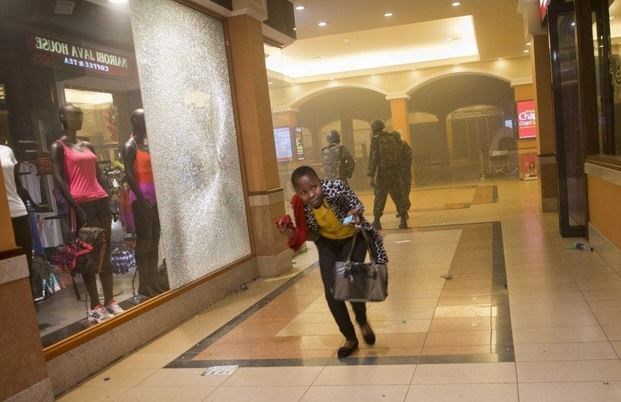
Friday September 28, 2018

On Sept. 21, 2013, as terrorists stormed the upscale Westgate Mall in the heart of Nairobi, most Kenyans had been struggling with the implications of the fact that their deputy president, William Ruto, was on trial at The Hague, accused of committing crimes against humanity — as his boss, President Uhuru Kenyatta, would be several months later.
The first witness in the case against Ruto was a survivor of a church burning that killed 35 on New Year’s Day 2008.
When she took the stand, her testimony began to reopen old wounds and to rekindle fears and hatreds. When Kenyatta went to The Hague in 2014, it was the first time that a sitting head of state was being tried at the International Criminal Court (ICC). There was a tangible sense of humiliation across the country.
Five years later, the cases at the ICC are a fading memory. As I stroll past the rebuilt and reopened mall, it feels as though none of these events ever happened. Four gunmen facing down a nation’s army and police as they massacre and terrorize Kenya’s rich and famous in a glitzy mall.
A small group of armed civilians taking them on in order to rescue hundreds. Incompetent and incoherent official communications providing comic relief.
Soldiers getting drunk and looting the mall while they pretend to fight terrorists who had long since disappeared. The tragedy of 68 dead people, almost 200 more wounded and scores more scarred for life.
But the events did happen. And despite our best efforts to forget them, they continue to haunt us today. The ghosts of Westgate are ever present.
They were at Garissa University College some 18 months later, when another youthful quartet held off the massed police and military while massacring 148 students and staff inside.
They are present in the ubiquitous security checks one has to undergo to enter a mall in Nairobi — in fact, the attacked spawned an entire security industry.
But Westgate’s most lasting effect has been to reinforce a culture of silence surrounding military malfeasance and incompetence. In many ways, Kenyans are a deeply traumatized people.
More than a century of depredations by successive colonial and post-colonial governments has left its mark.
Yet for much of that history, the military was largely considered to be above the fray, a beacon of professionalism and honor in an otherwise seamy and degenerate political sea.
Having resisted the temptations of power, the Kenya Defense Forces (KDF) were seen as the polar opposites of the much-maligned and corrupt National Police Service which Kenyans interact with every day.
Westgate helped end all of that. It cruelly exposed the rot in the military and completely exploded the myth of discipline, competence and integrity.
The 2015 Garissa attack followed by the massacres of KDF soldiers in Somalia, first at El Adde in 2016 and a year later, at Kulbiyow, undermined any remaining confidence in the military’s abilities.
Yet all these incidents were quickly enveloped in a deep and unrelenting silence from the government and a profound reluctance by the country’s other nongovernmental institutions — media, civil society, church — to probe too deeply into them. It is a script that was pioneered at Westgate.
It is perhaps understandable that Kenyans would be scared of having the KDF shown to be little better than the rest of government. And the government has skillfully played on those fears to avoid scrutiny of its actions.
Criticism of the military has been likened to giving succor to the enemy; that its refusal to answer questions is justified under the rubric of national security. The rest of society, especially the oft-described “vibrant” media, has followed suit.
For example, reflections on the anniversary of Westgate in the Kenyan media have mostly been of the hagiographic variety, with focus on the heroism and resilience of rescuers and survivors as well as the diminished threat from al-Shabab, but very little discussion of the government’s and the military’s mendacity, incompetence and thievery throughout the crisis.
After half a decade, the lack of an official account of what happened — despite Kenyatta’s promise in the immediate aftermath to set up a public commission of inquiry — barely registers on the media radar. Neither do the many holes and contradictions in what officials and officers said and did during the crisis. There are few demands for accountability and even fewer for reform.
The rebuilt Westgate Mall is today being reinvented as a symbol of resilience and triumph (“We have ashamed and defeated our attackers,” the president declared five years ago) rather than a reminder of the tragicomedy that is the failure of government — “the epic clusterf———,” as a now-deleted tweet from the Kenya National Disaster Operations Center, which manages and coordinates government disaster response, described it.